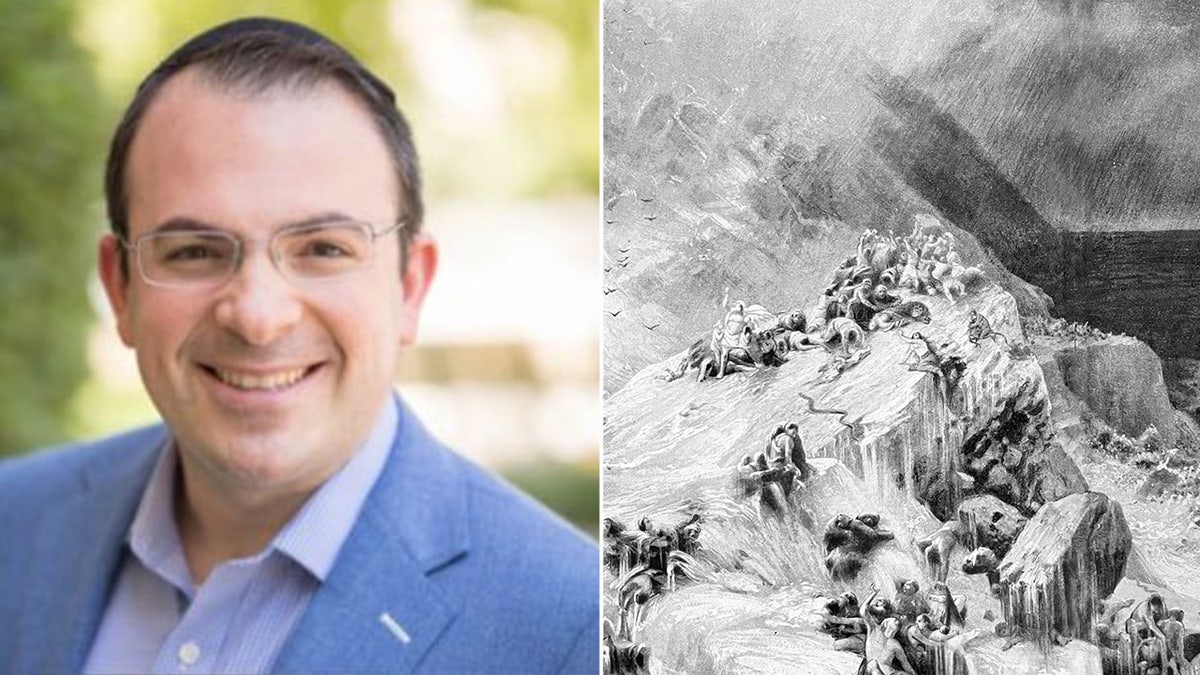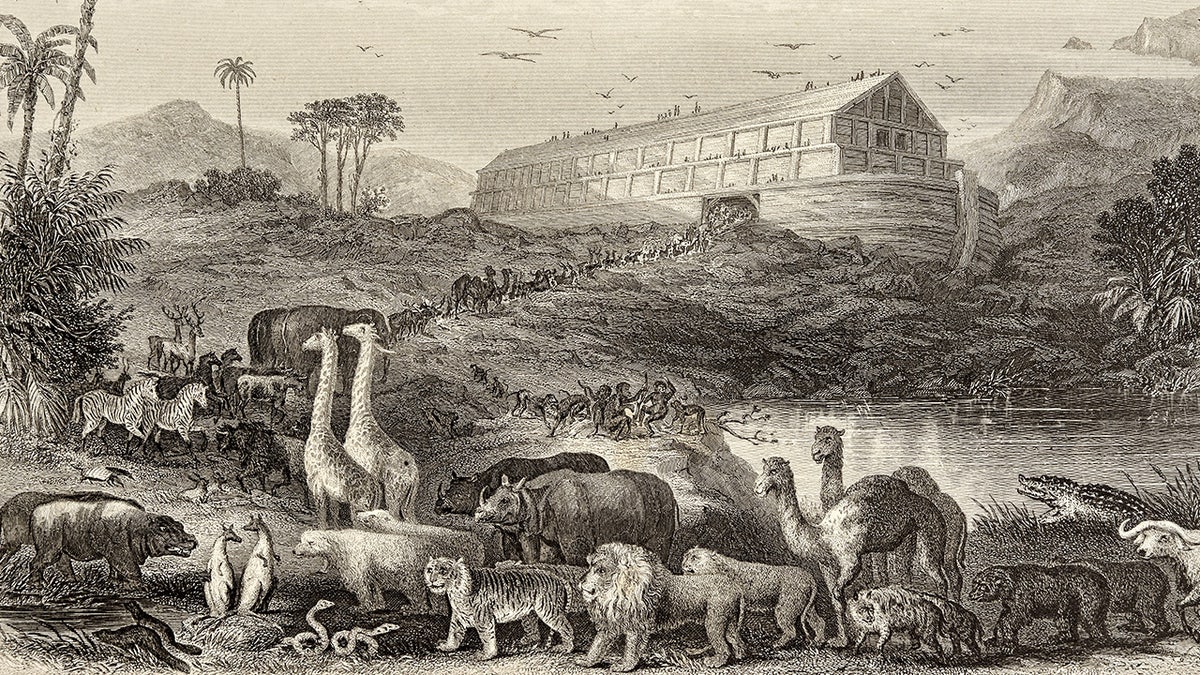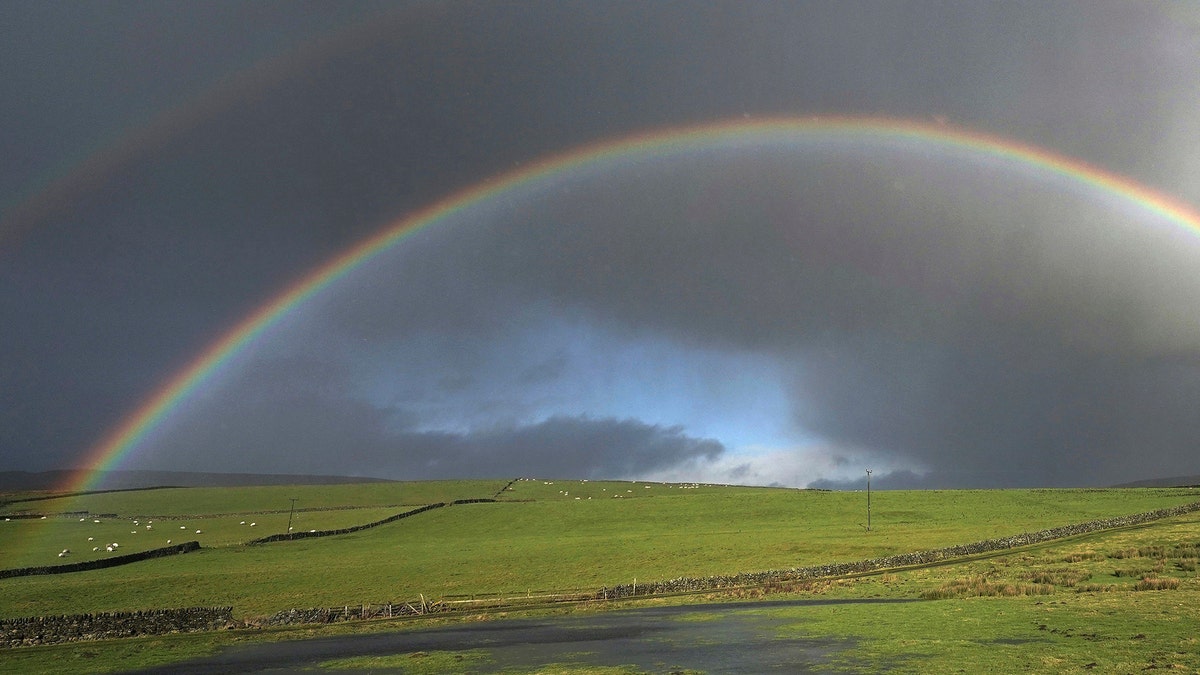Fox News Flash top headlines for February 10
Fox News Flash top headlines are here. Check out what's clicking on Foxnews.com.
"Now the earth was corrupt in God's sight, and the earth was filled with violence" (Genesis 6:11).
This passage comes from the Book of Genesis, the first book of the Bible. Genesis includes, among others, the story of the seven days of creation, the story of Adam and Eve and the story of Noah's Ark.
Tradition states that Moses was the author of Genesis.
Readers of Genesis may be confused as to why God destroyed the earth with a flood after his first attempt at creation, New York-based rabbi Dr. Ari Lamm told Fox News Digital.
PRAYER, AT ITS CORE, IS A 'LOVING RELATIONSHIP' WITH GOD, SAYS DC-BASED DOMINICAN FRIAR
Lamm is the chief executive of BZ Media, a group dedicated to "bringing together the creative talent and philanthropic resources to produce the best Jewish and Israel content for mainstream Gen Z audiences and beyond."
Genesis 6:11, which states that the "earth was corrupt" and "filled with violence," provides a clue about God's anger, said Lamm.

Rabbi Dr. Avi Lamm told Fox News Digital that God chose to destroy the world with the great flood, as humans had begun to treat each other with contempt. (Rabbi Dr. Avi Lamm/iStock)
In Hebrew, the word used in this verse is "chamas," which is often, but not always, translated into English as "violence," he said.
"I suspect they weren't too sure what the word meant," said Lamm.
NEW BOOK, A DEVOTIONAL CALLED 'LIGHT FOR TODAY,' MAY HELP OPEN EYES TO GOD 'AS A LIVING REALITY'
The word's actual meaning is fairly nuanced, he said.
"Forms of the word ‘chamas’ appear 60 times in the Bible. But other than here in the story of Noah, there are only three times in the Bible where it accompanies the verb ‘malei,’ meaning ‘fill,’" he said.

In Genesis, God became frustrated at the state of the world — and directed Noah to build an ark to keep his family safe during the great flood. (iStock)
In other parts of the Bible, "chamas" is translated to "theft," he said.
"But even ‘theft’ misses some important nuances," said Lamm. "The word ‘chamas’ conveys a larger sense of callous disregard for others' humanity, not just in monetary matters."
NEW JERSEY RABBI SAYS JOSEPH'S STORY IN GENESIS IS A REMINDER TO PUT FAMILY FIRST
"So let's bring it back to Noah. Why did God destroy the world? Not because of physical violence, or even necessarily because of theft," said Lamm.
"But because of ‘chamas’ — treating others with contempt, failing to see our shared divine image."

The Book of Genesis states that after the flood, the rainbow was the symbol of God's promise not to destroy the world again. (Owen Humphreys/PA via AP)
Once people began to treat others with contempt, they "became capable of true evil," said Lamm.
"The ancient rabbis told the following story about the generation of the flood. You'd go to market with a bucket of produce. Passerby would all casually steal less than a penny's worth from the bucket. Too little to prosecute ... but enough so that by day's end you'd have nothing," he said.
CLICK HERE TO SIGN UP FOR OUR LIFESTYLE NEWSLETTER
Lamm said this story is one of his favorites, as "it so poignantly gets at both the ‘theft’ meaning and the callous disregard for humanity: No one cared about harming others."
He added, "They just didn't want to be held responsible if they were caught!"
CLICK HERE TO GET THE FOX NEWS APP
The lessons learned in Genesis remain applicable to today, said Lamm.
"We should begin resolving to treat our fellow citizens, regardless of our disagreements, as full partners in our aspiration to better the American experiment, and ensure our mutual human flourishing," he said.
For more Lifestyle articles, visit noticias.foxnews.com/lifestyle.





















